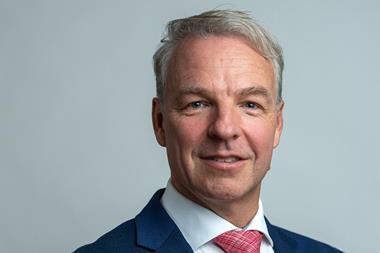The German Federal Ministry for Economic Affairs and Climate Action (BMWK) has drafted a start-up strategy that would see a push worth a total of €30bn into investments in venture capital (VC) funds through pension assets and institutional investors.
According to the draft, the government is planning to set a minimum investment quota for statutory and private pension schemes in VC funds to structurally and permanently strengthen the capital available for start-ups.
The government’s strategy would help transform the economy with investments in technology to fight climate change, artificial intelligence, quantum technology, hydrogen, sustainable mobility, healthcare, bio-economy and circular economy, it said in the draft.
Last year, the cabinet led by Angela Merkel and supported by the grand coalition of Social Democrats (SPD) and the Union – the coalition between the Christians Democratic Union (CDU) and the Christian Social Union (CSU) – quick started equity fund Zukunftsfonds (Future Funds) with €10bn to invest in start-ups working with future technologies that need to scale-up their businesses during capital-intensive phases of growth.
The current cabinet supported by the ‘traffic-light’ coalition of the Social Democrats, Free Democrats and the Greens will continue the consultation on the strategy, launched earlier this year, until the end of the summer in order to finalise and implement it.
Green MP Anna Christmann, the German Ministry for Economic Affairs and Climate Action’s representative for the digital economy and start-ups, said: ”We want to cover a wide range of topics and quickly finalise the strategy […] in this legislative period.”
The current government follows in the footsteps of Merkel´s cabinet, aiming to attract capital for VC investments from institutional investors with a fund of funds set up at KfW Capital, the venture capita arm of the state-owned development bank KfW, within the framework of the Zukunftsfonds.
It is opening up a series of financing facilities including the GFF-EIF Growth Facility of the European Investment Fund (EIF) and KfW Capital, the Deep Tech & Climate Funds, for high-tech start-ups, and the Venture Tech Growth Financing facility to deploy capital in the form of so-called venture debt for companies in late-stage growth phase, to strengthen the market for venture debt in Germany, according to the document.
The government is also considering setting up a facility to finance young innovative companies that previously had no access to venture capital funds, the draft plan stated.
It is also planning to channel on average at least 20% of venture and growth capital to finance high-tech early and late-stage companies active in the fields of green tech, sustainability or social impact under the ERP/EIF facility, jointly set up with EIF, from 2022 to mid-2025.
The government will also review the requirements for IPOs in connection with the Listing Act proposed by the European Commission and part of the Capital Markets Union (CMU) Action Plan, to adapt regulations to international standards and to bring up-to-date rules on stock exchange listings, with the help of a working group established by financial supervisory authority BaFin, it said.
In Europe the government wants to engage in funding young companies by soon joining the Europe Startup Nations Alliance (ESNA), an organisation supporting start-ups in member states.
The latest digital edition of IPE’s magazine is now available














